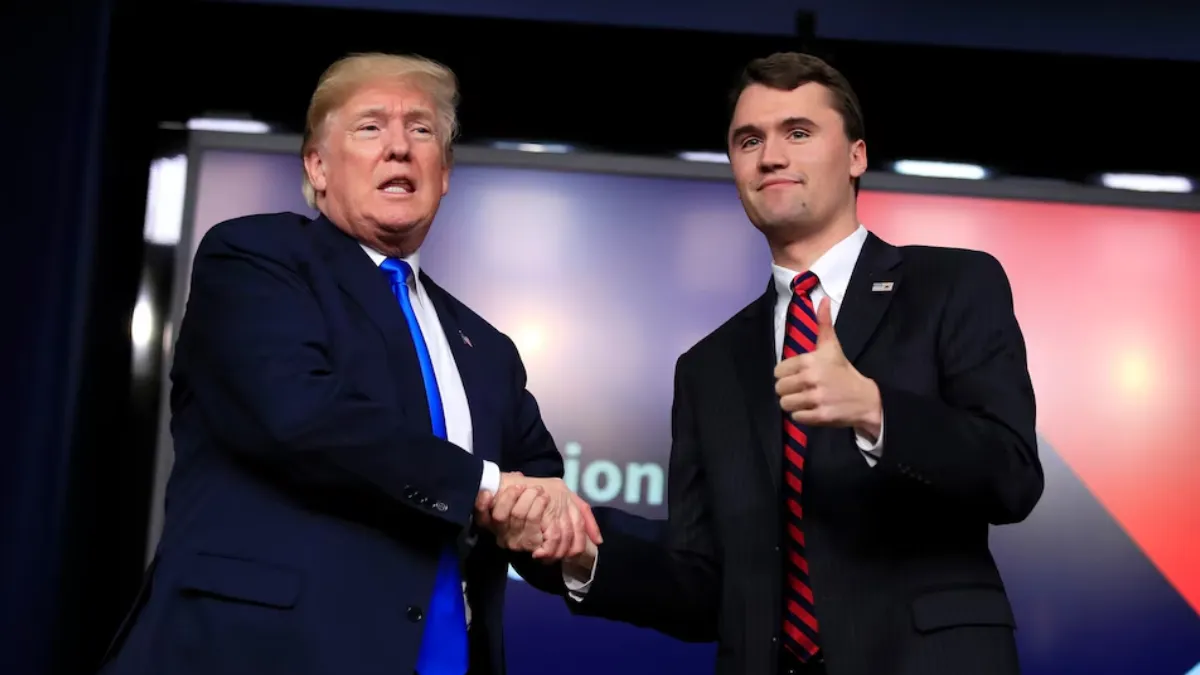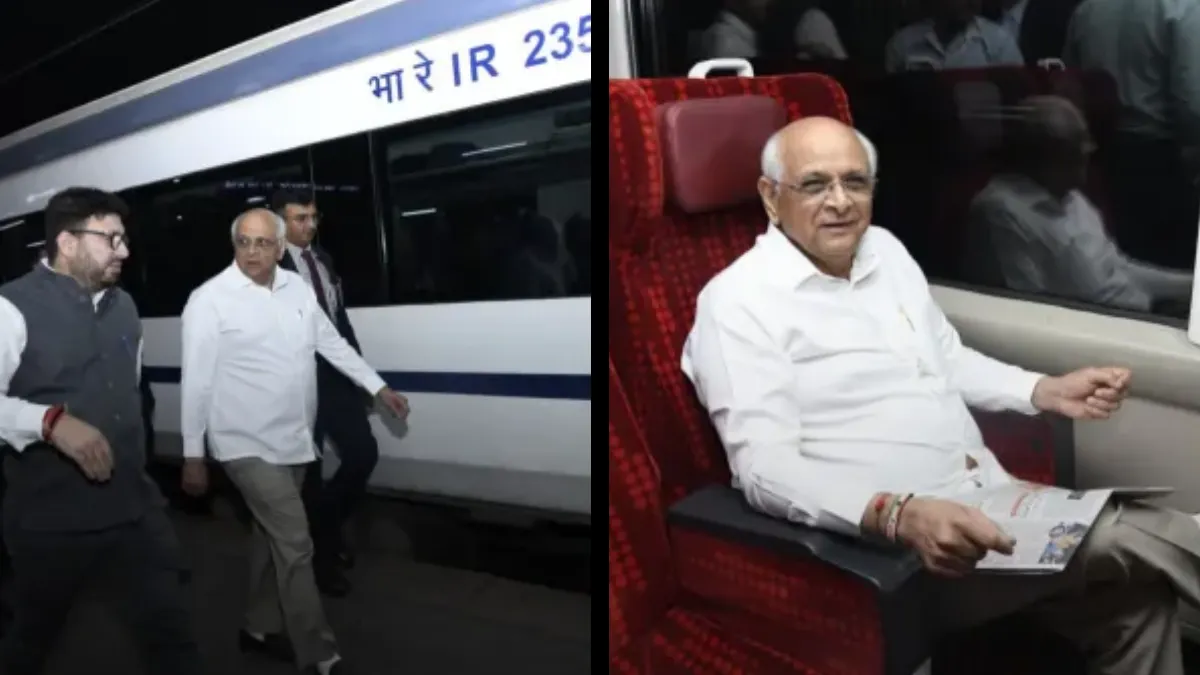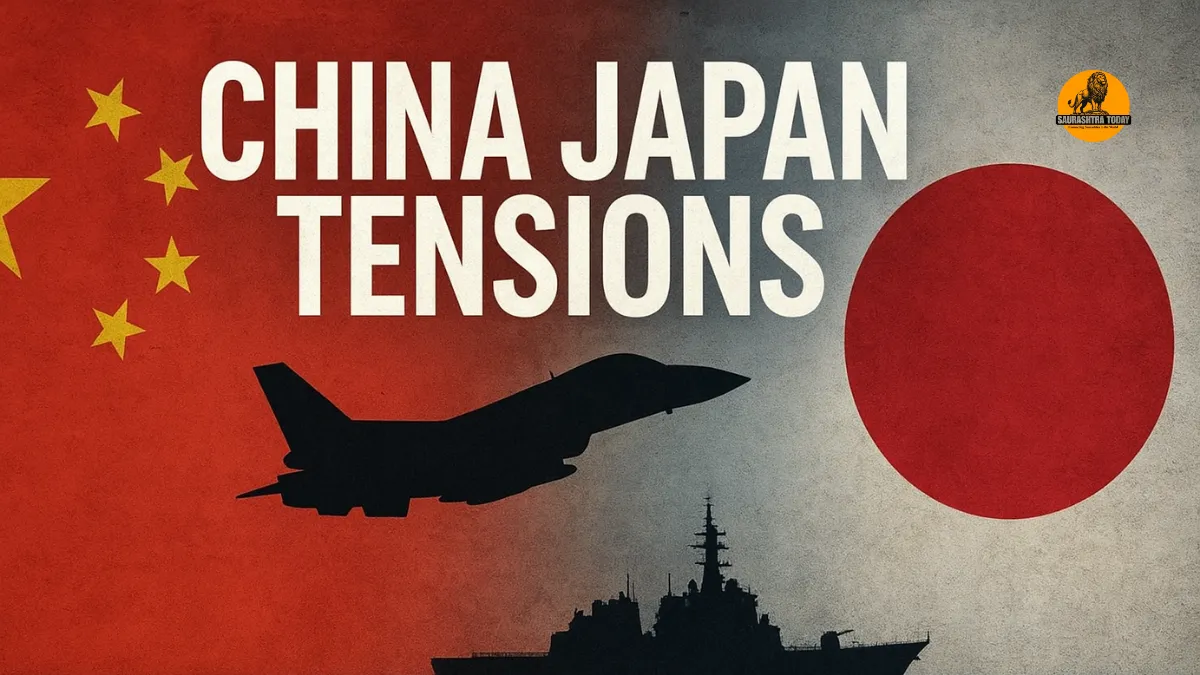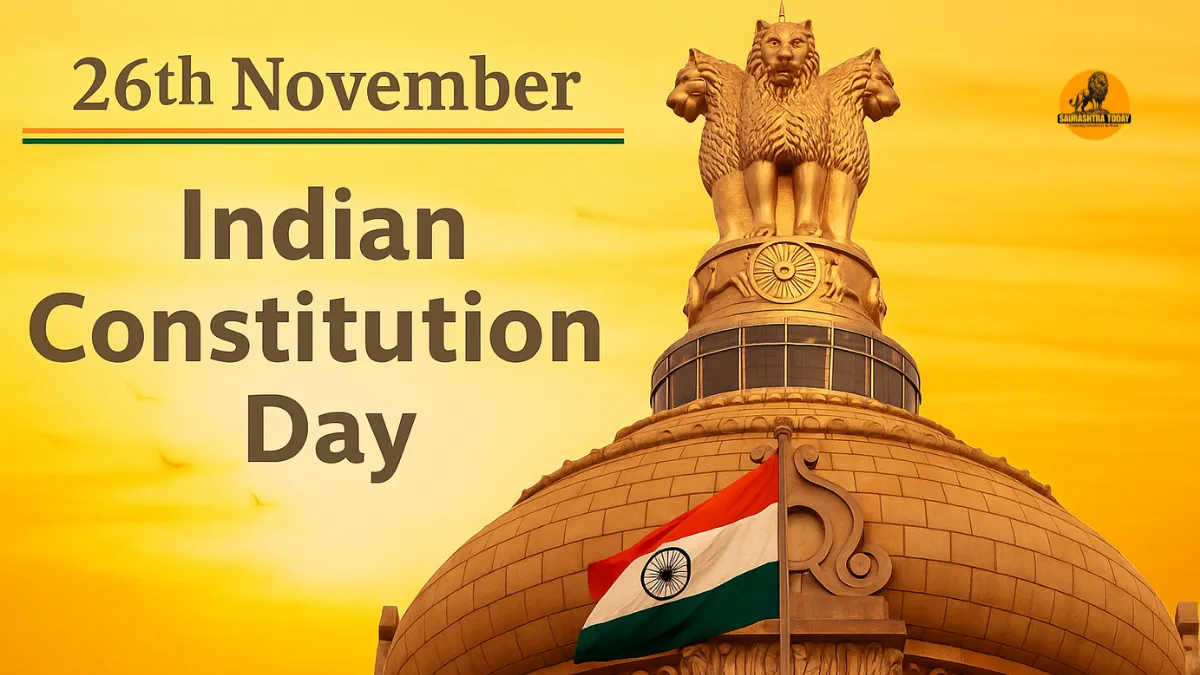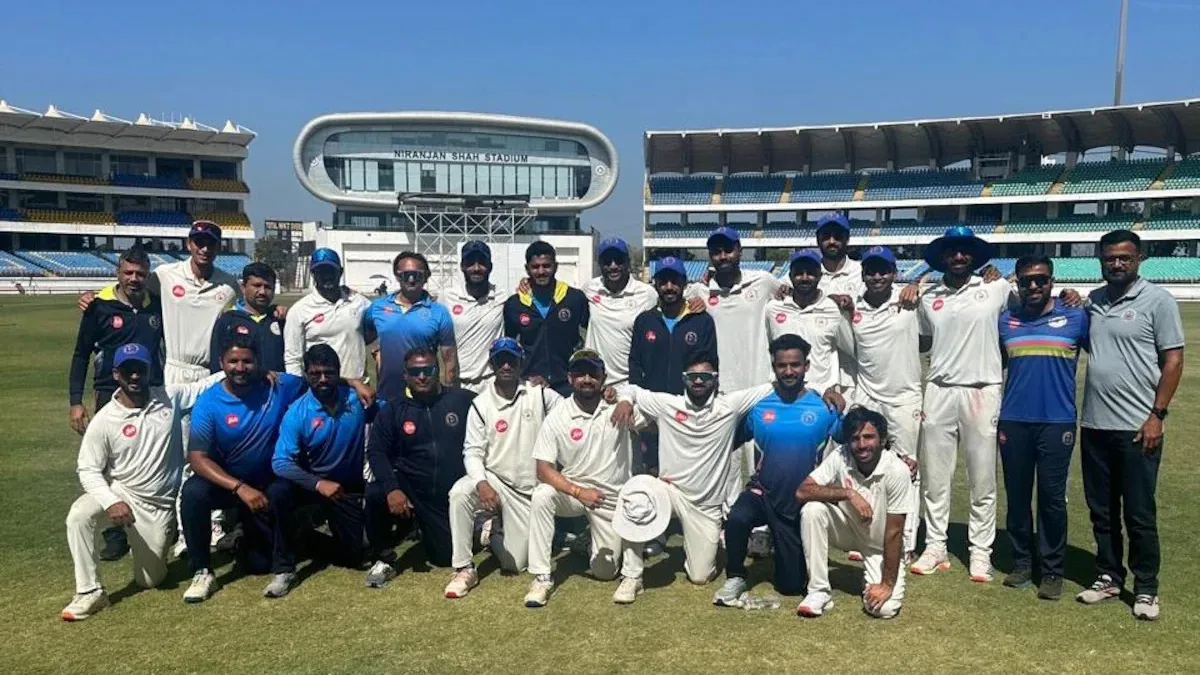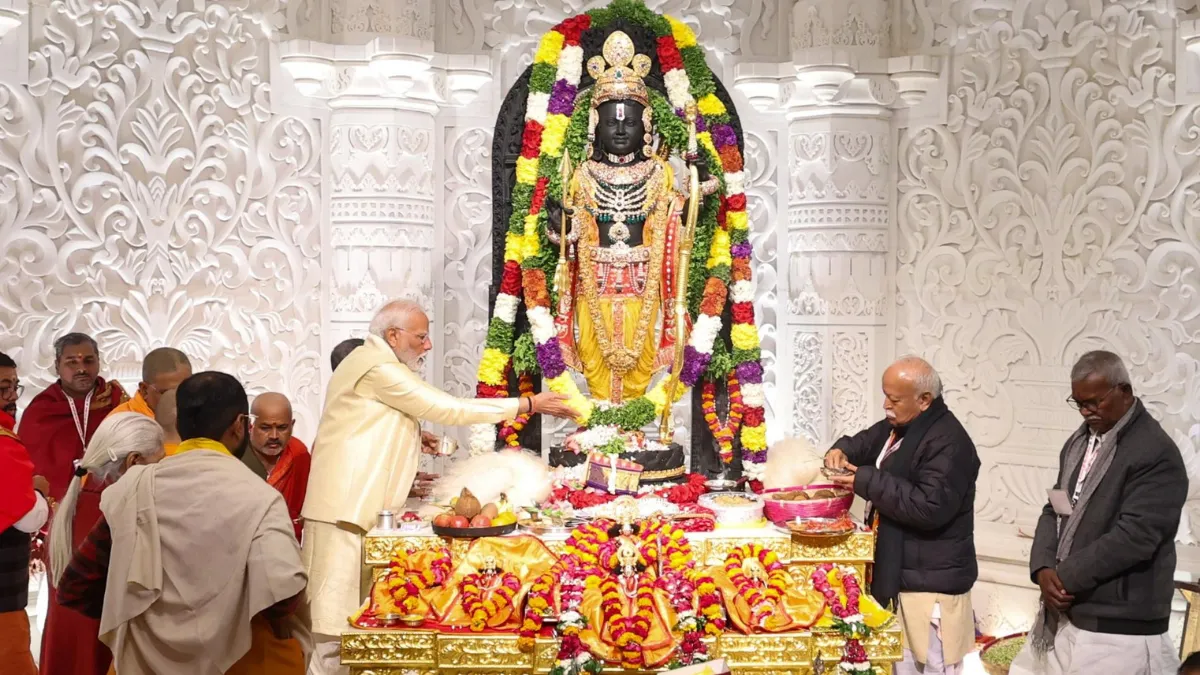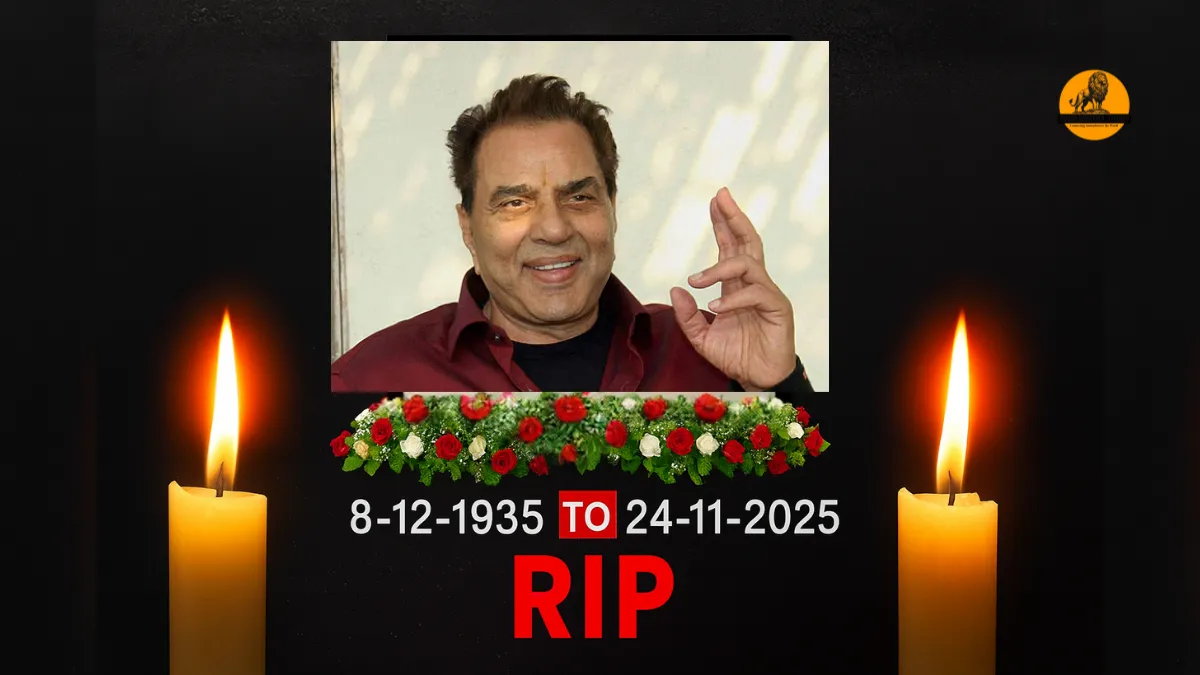Trump Kirk: In a significant move, the US State Department announced on Tuesday that it has revoked the visas of six foreign nationals who allegedly made controversial comments on social media regarding the assassination of right-wing activist Charlie Kirk. This unprecedented decision highlights the administration’s stance on protecting American citizens and its zero-tolerance policy toward foreign nationals promoting or celebrating violence.
Why the Visas Were Revoked
According to a statement by the State Department, “The United States has no obligation to host foreigners who wish death on Americans.” The statement further clarified that officials are actively identifying visa holders who celebrated what it termed the “heinous assassination of Charlie Kirk.”
The department did not disclose the names of the individuals, citing privacy and security concerns. However, it did mention the countries these foreigners belong to: Argentina, Brazil, Germany, Mexico, Paraguay, and South Africa. Screenshots and social media posts were shared to support the decision, which enabled partial identification of two individuals, one of whom had previously been targeted by conservative users online.
Social Media Comments That Triggered Action
One of the social media comments highlighted in the State Department thread read:
“Charlie Kirk won’t be remembered as a hero. He was used to astroturf a movement of white nationalist trailer trash!”
Such posts, according to authorities, crossed the line from free speech into celebrating violence against an American citizen. The decision demonstrates the government’s focus on holding foreigners accountable for online behavior that threatens US citizens.
Government Statement on Enforcement
The State Department emphasized that both former President Donald Trump and Secretary of State Marco Rubio are committed to protecting the nation. The statement said:
“Aliens who take advantage of America’s hospitality while celebrating the assassination of our citizens will be removed. We will defend our borders, our culture, and our citizens by enforcing our immigration laws.”
This reflects a broader strategy of vigilance against foreign nationals who are perceived to undermine American safety and values, even from abroad.
Previous Actions Against Foreign Nationals
The revocation of these visas is not an isolated incident. In recent months, the US administration has taken similar actions against foreign nationals for comments or actions deemed threatening or inappropriate:
- The US expelled South Africa’s ambassador for critical remarks about Trump.
- Visa for Palestinian President Mahmoud Abbas was revoked to prevent him from attending the United Nations General Assembly in New York.
- The visas of British punk-rap duo Bob Vylan were also canceled.
Such measures are part of a larger effort by the US government to monitor the activities of more than 55 million visa holders and ensure compliance with American standards.
Also read:Charlie kirk presidential medal of freedom by Donald Trump
Social Media Monitoring and Visa Policies
The Trump-era administration has intensified the scrutiny of social media accounts of foreign visitors. All prospective visitors are now often required to make their social media profiles public to allow authorities to review posts and activities before granting entry into the US.
Last month, Deputy Secretary of State Christopher Landau requested users to report posts critical of Charlie Kirk. He stated that he was “disgusted to see some on social media praising, rationalizing, or making light of the event” and directed consular officials to take appropriate action against such individuals.
Broader Context: Student Protests and Social Unrest
The administration has also targeted foreign students involved in protests, particularly those protesting Israel’s military actions in Gaza. Many students have faced visa scrutiny and potential expulsion if their activities are perceived as participating in unrest or anti-American sentiment.
This approach reflects a growing trend of linking visa status to social and political conduct, not just criminal activities. Critics argue that it represents a concerning expansion of government oversight into personal opinions and online expressions.
Also read: Trump Modi: Strengthening the India-US Relationship Amid Strategic Talks
Criticism from Civil Rights Groups
Civil rights organizations have condemned these measures as violations of freedom of speech, which is protected under the US Constitution for all residents, not just citizens. Legal experts argue that restricting visas based on opinions or political criticism sets a dangerous precedent, potentially chilling dissent and limiting open dialogue on social media platforms.
Despite these concerns, the State Department has maintained that protecting American citizens from threats, including foreign online commentary celebrating violence, remains a top priority.
Implications for Future Visa Applicants
Foreign nationals planning to visit the US should exercise caution while posting content online. The recent actions underscore that social media activities can directly impact visa eligibility. Observers suggest that the Trump Kirk case may serve as a warning for international visitors to avoid controversial comments regarding American political figures or activists.
Experts also highlight that this trend could shape global perceptions of the US as a strict regulator of social media behavior, where online expression may have real-world consequences on travel and diplomatic relations.
Conclusion
The US government’s decision to revoke visas over social media posts about Charlie Kirk is an important milestone in immigration enforcement under the Trump-era policies. While aimed at safeguarding citizens, it raises critical questions about freedom of speech, civil liberties, and the role of social media in international diplomacy.
As the US continues to review the conduct of millions of visa holders, the Trump Kirk incident serves as a reminder that foreign nationals can face serious consequences for online behavior deemed threatening or disrespectful toward Americans. The balance between national security and constitutional freedoms remains a contentious and closely watched debate.
